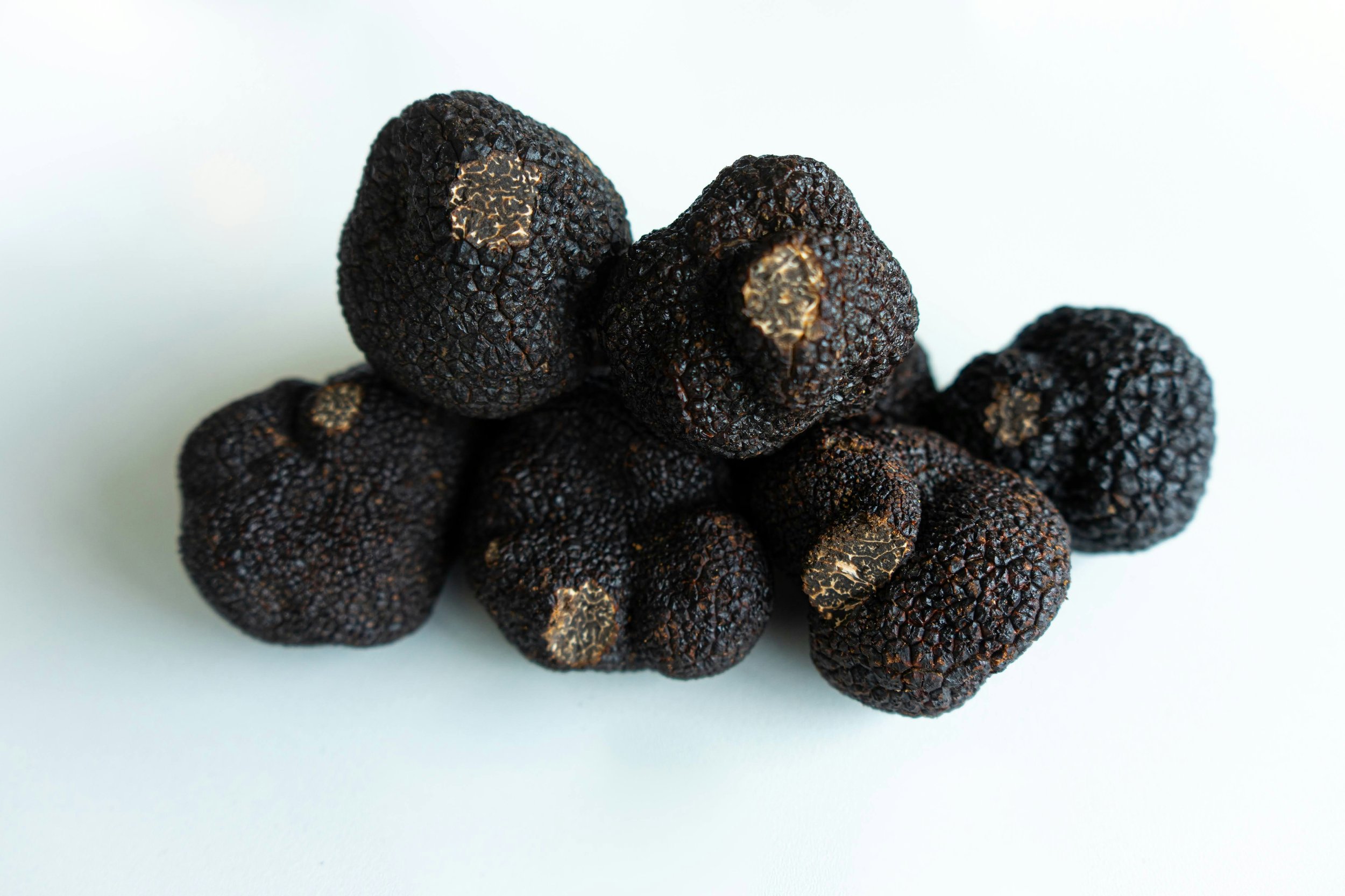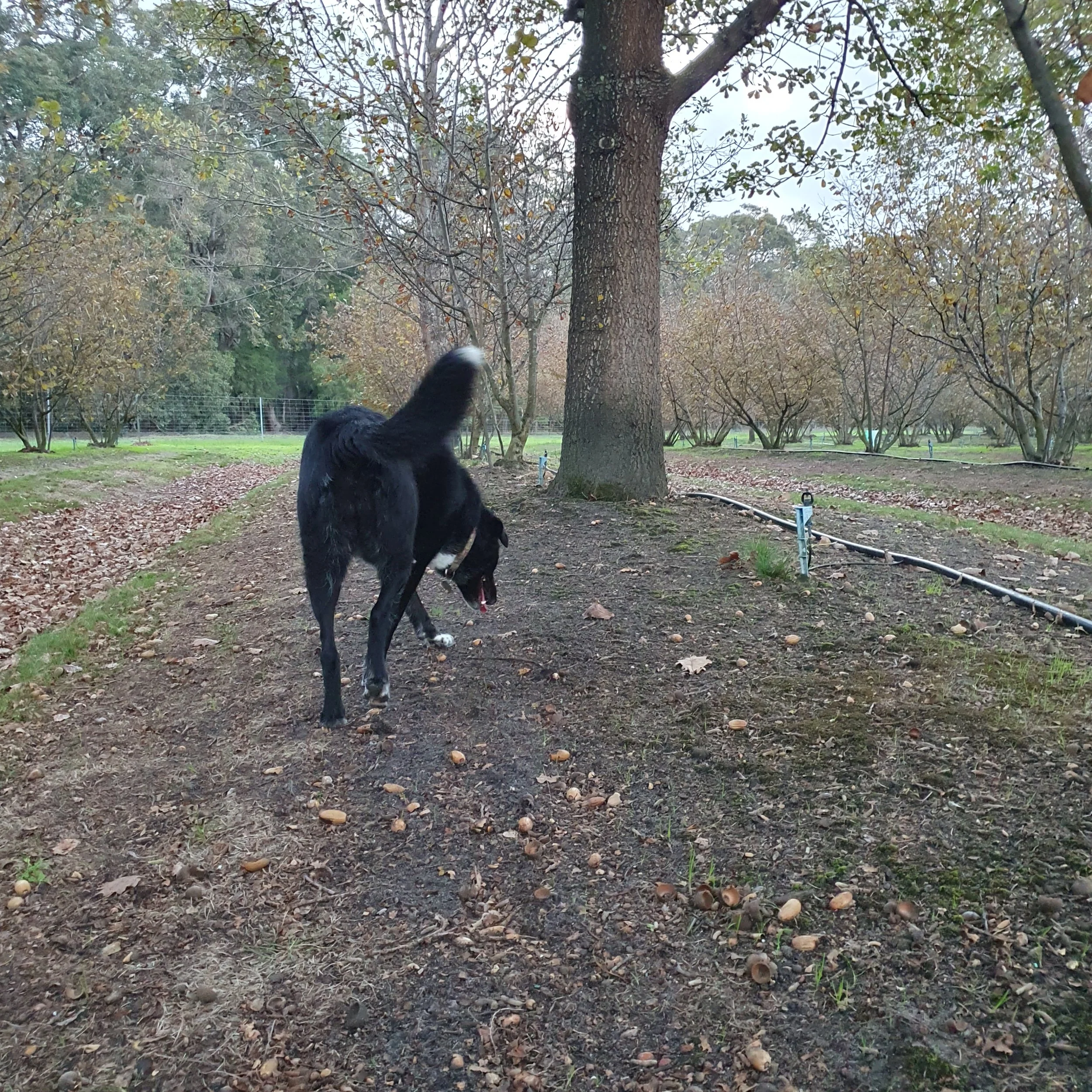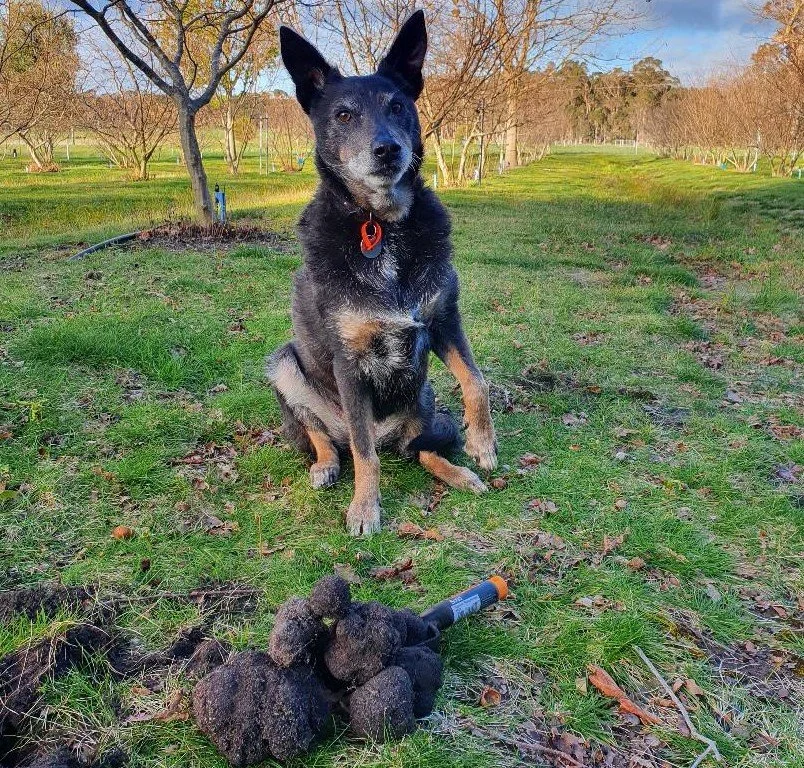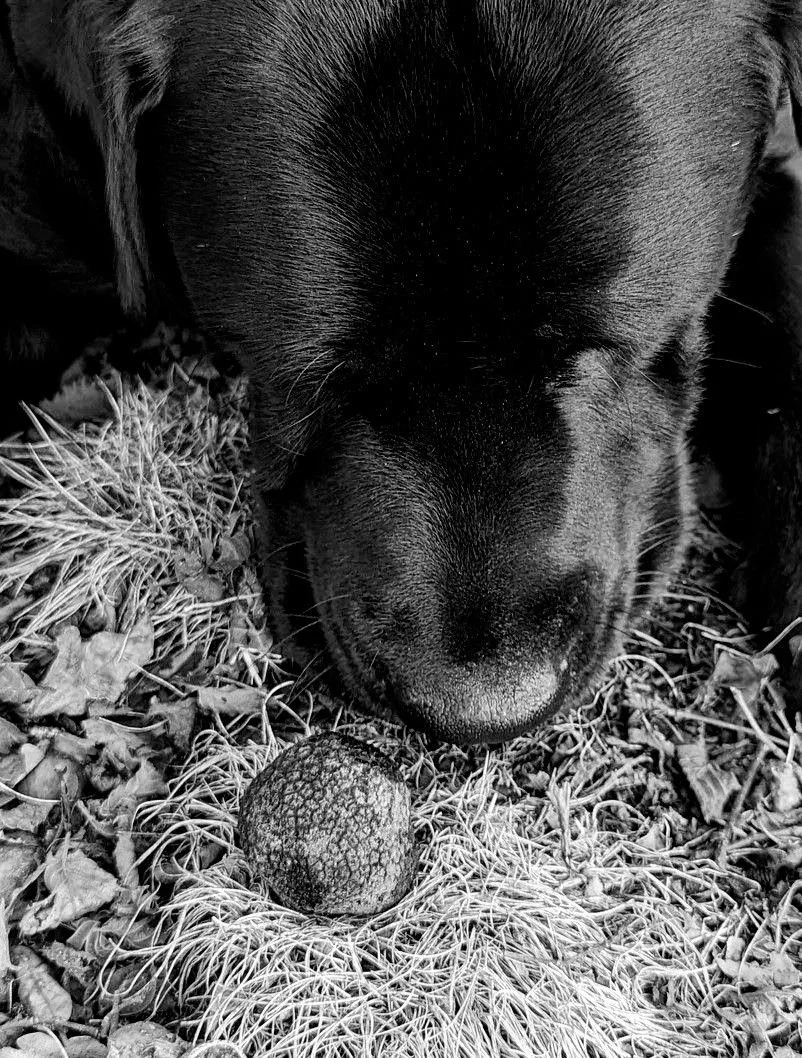
The Secret Life of a Truffle:
A Year in Our Orchard

January to March:
A truffle is born
Deep beneath the earth, a fascinating transformation begins. Our prized black truffles, the spore-carrying fruit of the Tuber melanosporum fungus, start to take shape. The fungus grows in a symbiotic relationship with the tree roots, providing nutrients to the tree in exchange for sugars photosynthesised by the tree. Above ground, we're busy ensuring these moisture-loving delicacies thrive. Irrigation is key during the hot summer months, and our sprinkler system requires constant attention – tiny snails seem to think the sprinkler heads are perfect homes, and cheeky parrots have a habit of using their beaks as secateurs to cut the micro tubes.

April to May: Ripening in the golden light
As the first rains arrive and the weather cools, our truffles gradually mature, their white-veined interiors darkening through caramel to a rich, chocolatey hue. The orchard floor becomes a stunning carpet of golden leaves, but beneath the beauty lurks a threat: bugs with an appetite for truffles. It's also a battle against the elements as we rake, suck, and blow leaves to protect our underground treasure.

June to August: A treasure hunt begins
The truffles continue to ripen, their aroma intensifying as they mature. Their alluring scent attracts a range of local fauna and also our specially trained truffle-hunting dogs. Twice a week at peak harvest, our canine companions lead us on a treasure hunt, their noses guiding us to the hidden gems. Each truffle is carefully unearthed, inspected, and only the perfectly ripe ones are harvested, washed by hand, and later meticulously graded to ensure the highest quality.

September to December: A new cycle begins
Any truffles that escaped detection, slowly decompose, releasing a multitude of spores into the soil. These spores become part of the building blocks for the next year's crop. Meanwhile, we're busy pruning trees, weeding, mowing and preparing for the next growing season. It's all worth it, though, when we see those first truffles emerge in the new year.




